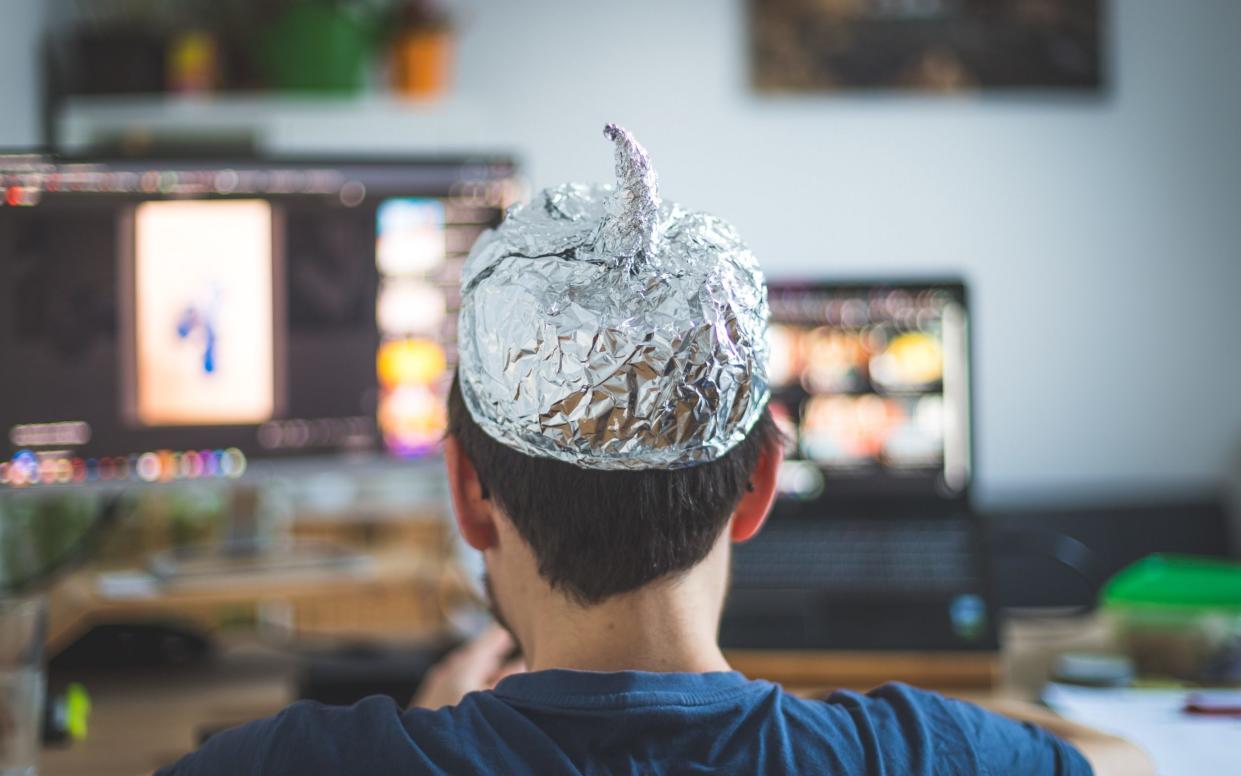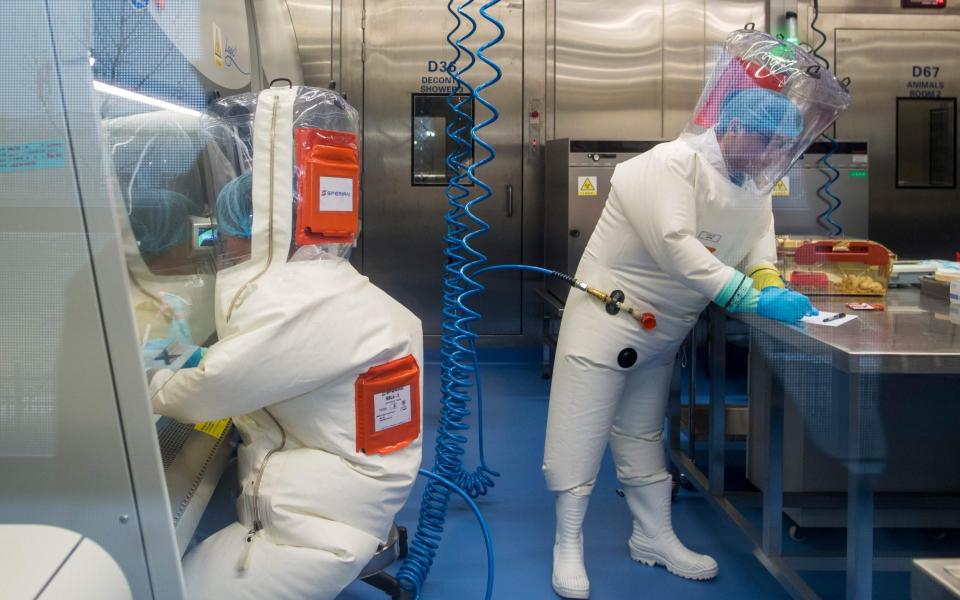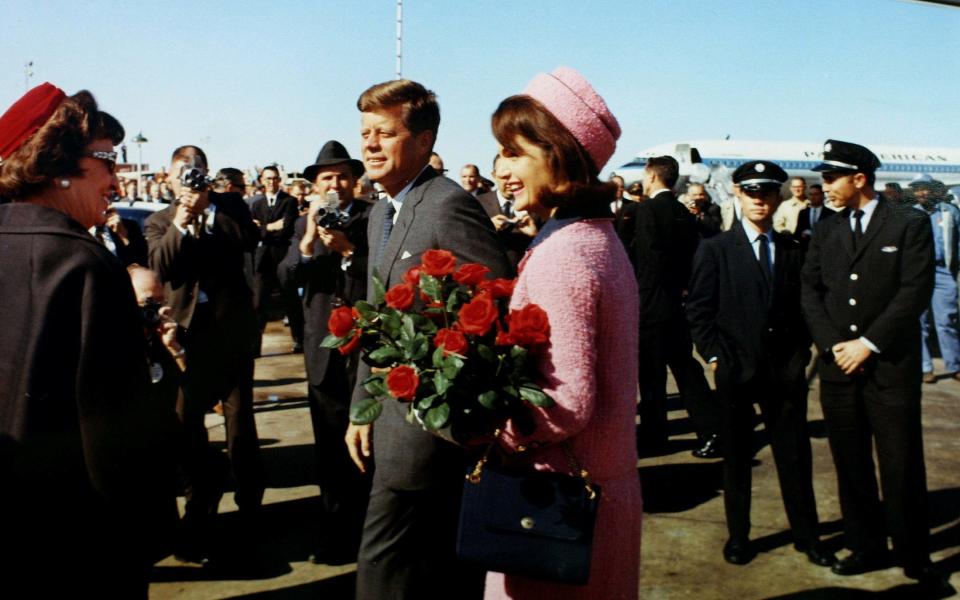Conspiracy theories are nonsense – until they feel right

I like to think of myself as less credulous than the average conspiracy theorist. When I see people babbling about UFOs, or how jet fuel fires could not have caused the World Trade Center to collapse, or that the Moon landings cannot have been real, my first reaction is to sympathise.
I wonder what must be missing from other parts of their lives to make them seek solace in such nonsense. If only we had better education and support structures, conspiracists would be able to find meaning elsewhere. Bill Gates is not trying to deactivate you, planes are not leaving chemtrails, Diana was not killed by Prince Philip.
When it comes to conspiracy theories I happen to believe in, however, that’s another matter. Once safely parked in my brain, these are no longer conspiracies but plain old theories: the most likely explanations of complicated situations, often involving some degree of government cover-up.
Take the idea that Covid emerged from a laboratory, rather than the Wuhan wet market. As the pandemic recedes from the mind, the lab leak remains a non-consensus view, albeit one taken up by increasing numbers of scientists. Barring China opening up its records, it seems likely to remain a matter of debate. Nobody will ever retrace the virus’s steps all the way back to the start.

Yet I am certain that the lab leak theory is correct. I can’t really say why. My scientific training stopped at my GCSEs. (My teachers might argue some time beforehand.) I have no special access to data or insider intelligence. If pressed for reasons for my belief, I would quote the research of Alina Chan, the Harvard virologist who has become the serious face of the theory and who says she is 90 per cent certain it came from a lab.
But I would be dissembling. The real answer is that the lab leak simply feels right to me. At some deep level, it makes more sense that the novel coronavirus emerged from a lab researching novel coronaviruses than randomly morphing out of a nearby raccoon dog or pangolin. The burden of evidence I would need to change my mind grows heftier by the day. Sorry to any scientists reading this: it’s probably the kind of thing that makes you want to lock yourself away in a lab for 30 years, but I don’t know how else to explain it.
Nor is the lab leak my only blind spot – or, as I would say, unusually perspicacious spot. With the media gearing up for the release of the list of people Jeffrey Epstein associated with, I have seen nothing to dent my conviction that his death in prison was not suicide. Similarly I had never thought much about JFK’s assassination until the coverage in November around the 60th anniversary.

A couple of documentaries and a few YouTube browsing sessions later, and I am certain the CIA was involved, or at least know more than they have let on. I believe Gareth Williams, the British spy who was found zipped into a bag, was murdered. The 2012 inquest ruled his death was “unnatural and likely to have been criminally mediated”, but Met Police detectives believed the death was probably accidental and ended their investigation a year later. In 2021, the Met said forensic evidence would be re-examined. (In the event I am ever found dead zipped into a bag, please treat it as suspicious.)
Like all believers, I take comfort in fellow travellers: there are plenty of smart people online who express sympathy with one, or more, of my fringe beliefs. But perhaps we are all equally deluded? Nobody is a conspiracy theorist in their own mind. Those who believe the moon landings were faked are presumably just as confident as I am.
Politics is more like conspiracy theories than most want to admit. We would like to think we approach elections with the same scrutiny we would apply to buying a car: research the facts, see what the expert reviewers say, make an informed decision. Mostly the evidence shows that we don’t do that. When it comes to politics, we are led by tribal affiliation or instinct. We go with what feels right and find the facts to suit us afterwards.
The tagline of the X-Files, a series founded on the conspiracy theory that supernatural phenomena have been secretly monitored by the US government, is that “the truth is out there”. The facts might be out there, but where the facts are contested, the truth is in our guts. And that is a much scarier prospect than a few little green men.

